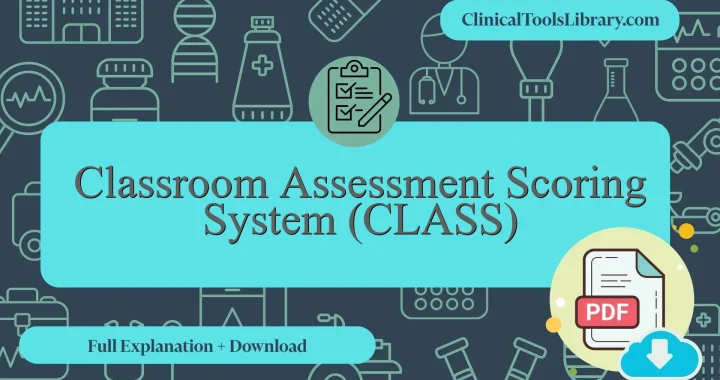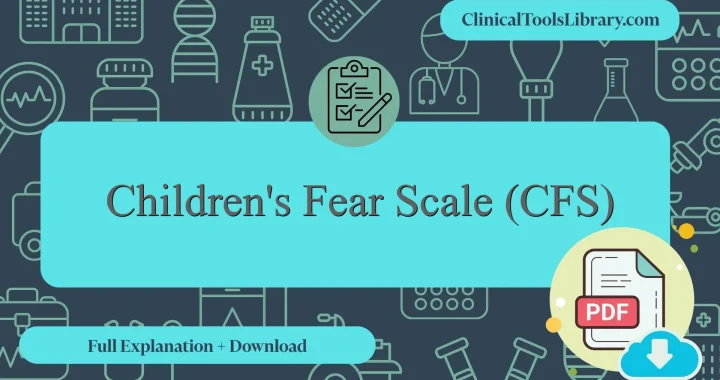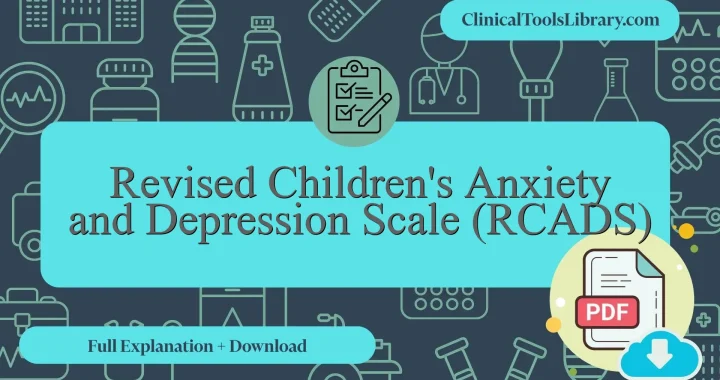In this article, we explain everything you need to know about the Pediatric Inventory for Parents (PIP). We will cover the aspects it evaluates, the target population, a detailed step-by-step explanation, and how to interpret its results. Additionally, we will dive into the scientific evidence supporting this tool (diagnostic sensitivity and specificity) in clinical assessment. You will also find official and unofficial sources available for download in PDF format.
What does the Pediatric Inventory for Parents (PIP) assess?
The Pediatric Inventory for Parents (PIP) is a standardized assessment tool designed to evaluate the frequency and difficulty of stress experienced by parents of children with chronic illnesses or complex medical conditions. It specifically measures the emotional and caregiving demands related to managing a child’s health, including aspects such as treatment adherence, healthcare appointments, and symptom management. The main purpose of the PIP is to identify areas of parental burden that may impact family functioning and to guide healthcare professionals in providing targeted psychosocial support and interventions. This instrument is widely utilized in both clinical and research settings to ensure a comprehensive understanding of parental stress associated with pediatric health challenges.
For which type of patients or populations is the Pediatric Inventory for Parents (PIP) intended?
The Pediatric Inventory for Parents (PIP) is primarily indicated for caregivers of children with chronic medical conditions, such as cystic fibrosis, cancer, and diabetes. It is most useful in clinical settings where the assessment of parental stress related to the management of pediatric illness is critical. The instrument quantitatively evaluates parental perceptions of stressors across domains including communication with healthcare providers, medical care responsibilities, role function, and emotional distress. Utilization of the PIP facilitates targeted interventions by identifying specific areas of caregiver burden in populations coping with complex, ongoing treatment regimens and frequent medical appointments.
Step-by-Step Explanation of the Pediatric Inventory for Parents (PIP)
The Pediatric Inventory for Parents (PIP) consists of 42 items designed to assess the frequency and difficulty of stress related to parenting a child with medical conditions. Each item addresses common challenges faced by parents, such as managing chronic illnesses like asthma or diabetes. Respondents rate each item on two 5-point Likert scales: one for frequency (ranging from 1 = never to 5 = very often) and another for difficulty (1 = not at all difficult to 5 = extremely difficult). The process begins with clear instructions encouraging parents to reflect on their experiences over the past week. After completing all items, scores are calculated separately for frequency and difficulty domains, providing a comprehensive profile of parental stress associated with their child’s health condition.
Downloadable PDF: Pediatric Inventory for Parents (PIP) Original & English Versions for Caregivers
Below are downloadable resources containing the Pediatric Inventory for Parents (PIP) available in both the original and English versions. These PDF documents are designed to assist healthcare professionals and caregivers in assessing the emotional and behavioral responses of children with chronic illnesses such as asthma and diabetes. Providing access to these standardized tools supports accurate evaluation and facilitates improved patient-centered care within pediatric healthcare settings.
How to interpret the results of the Pediatric Inventory for Parents (PIP)?
The Pediatric Inventory for Parents (PIP) is a validated tool used to assess stress levels in caregivers of children with chronic illnesses. Interpretation involves analyzing the frequency and difficulty scores, typically reported on scales from 1 to 5, where higher values indicate greater stress. Reference ranges vary by population but generally, a total score above 75 suggests clinically significant stress that may warrant intervention. The scores can be quantitatively evaluated using the formula Total Score = Σ Frequency Scores + Σ Difficulty Scores, with each subscale providing insight into specific stress domains. For healthcare professionals, elevated PIP results signal the need for targeted psychosocial support and may correlate with poorer caregiver coping, potentially impacting patient adherence and outcomes in conditions such as cystic fibrosis or diabetes mellitus. Thus, the PIP facilitates the identification of high-risk families and guides comprehensive care planning.
What scientific evidence supports the Pediatric Inventory for Parents (PIP) ?
The Pediatric Inventory for Parents (PIP) was developed in the early 2000s to assess stress specifically associated with caring for children with chronic illnesses. Initial validation studies demonstrated strong internal consistency, with Cronbach’s alpha coefficients exceeding 0.90 across the test’s domains. Subsequent research confirmed its convergent validity by correlating PIP scores with established measures of parental stress and anxiety. The instrument has been empirically supported in populations dealing with conditions such as pediatric cancer, diabetes mellitus, and asthma, providing reliable quantification of caregiving burdens. Longitudinal studies also indicate the PIP’s sensitivity to changes in parental stress over time, reinforcing its utility in both clinical and research settings focused on pediatric health outcomes.
Diagnostic Accuracy: Sensitivity and Specificity of the Pediatric Inventory for Parents (PIP)
The Pediatric Inventory for Parents (PIP) demonstrates a sensitivity range of approximately 0.75 to 0.85 in identifying elevated stress levels among caregivers of children with chronic illnesses, indicating a strong capacity to detect true positive cases. Specificity values generally fall between 0.70 and 0.80, reflecting moderate accuracy in correctly identifying parents without clinically significant stress. These psychometric properties were established through validation studies involving diverse populations, including caregivers of children with cancer and neurological disorders, underscoring the PIP’s utility in clinical and research settings aimed at assessing parental stress related to pediatric chronic conditions.
Related Scales or Questionnaires
The Pediatric Inventory for Parents (PIP) is comparable to several other instruments such as the Parenting Stress Index (PSI), the Caregiver Strain Questionnaire (CGSQ), and the Child Behavior Checklist (CBCL). The PSI offers comprehensive assessment of parental stress but may be lengthier and less specific to illness-related stress than the PIP. The CGSQ focuses on caregiver strain associated with chronic conditions like asthma and diabetes, providing relevant contextual information; however, it is less validated in pediatric populations. The CBCL evaluates behavioral and emotional problems in children, complementing parental stress measures but not directly assessing parental distress. All these scales and questionnaires, detailed and available for download on ClinicalToolsLibrary.com, present varying balances of breadth and specificity, allowing clinicians to select tools best suited to their assessment goals.




